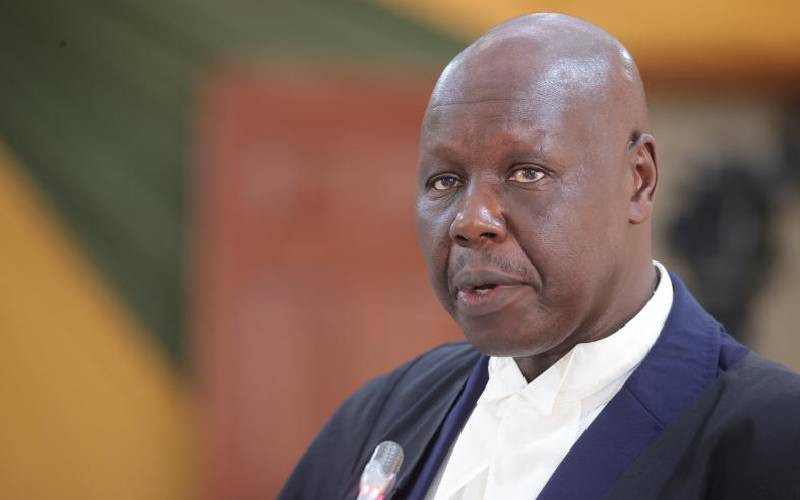President William Ruto’s lawyer has withdrawn from the Independent Electoral and Boundaries Commission (IEBC) race amid controversy on six names added to the list of interviewees.
Katwa Kigen, who was scheduled to appeal before the Selection Panel on Thursday afternoon, said he had shelved his ambition by "avoiding unnecessary diversion" from the commission’s role.
Panel Chairman, Nelson Makanda said they had received his communication. “Yes, he withdrew. He was supposed to have come today but he withdrew. He sent a letter to withdraw. So, he is not coming and we acknowledge that,” said Dr Makanda.
On the controversy on the six additional names above the initial 105 listed for the commissioner position, the panel is yet to explain the circumstances.
Those added to the list are Hassan Noor Hassan, Jibril Maalim Mohamed, Michaels Ben Oliewo, Charles Kipyegon Mutai, Stephen Kibet and Joel Mwita Daniel.
On day 13, Bishop Joseph Kyavoa, Joseph Kipng’etich Magutt, Jonathan Ltipalei Lodompui, John Kilonzo Muthama and Joyce Kemunto appeared before the panel.
The process continues against the controversy as two sides of the political protagonists clash over how the polls body should be reconstituted.
Wiper, DAP-K and People’s Liberation Party leaders, Kalonzo, Eugene Wamalwa and Martha Karua claimed Kenya Kwanza and ODM were determined to control the recruitment.
But ODM Secretary General, Edwin Sifuna, termed their remarks as unfounded, saying the process is being conducted in compliance with the National Dialogue Committee report.
The exercise is behind schedule with IEBC having missed crucial constitutional deadlines. Sifuna said blamed the Kalonzo party for the delay, saying Wiper had failed to resolve a dispute on its nomination to the Selection Panel.
“In fact one of the candidates shortlisted for membership in the commission is Kalonzo’s advisor, and this is fully within the candidates’ constitutional right,” he said.
MPs from across the political divide agreed to give the panel enough time to complete the vetting process.
“This nefarious exercise, we believe, is intended to rig the next General Election to perpetuate the continuation of the Kenya Kwanza regime that has clearly lost the trust and confidence of the people of Kenya,” said Karua last month. By Irene Githinji,The Standard






